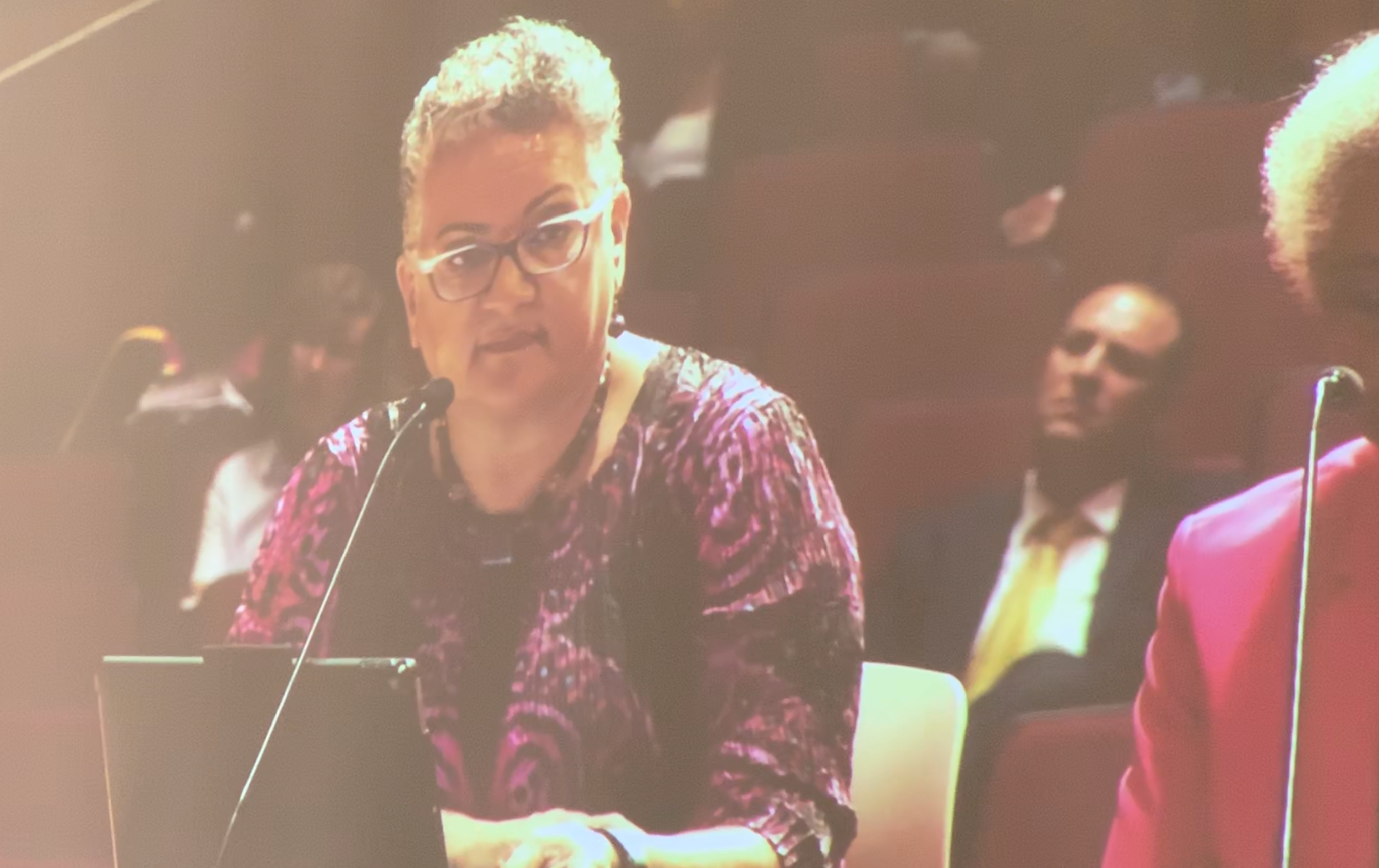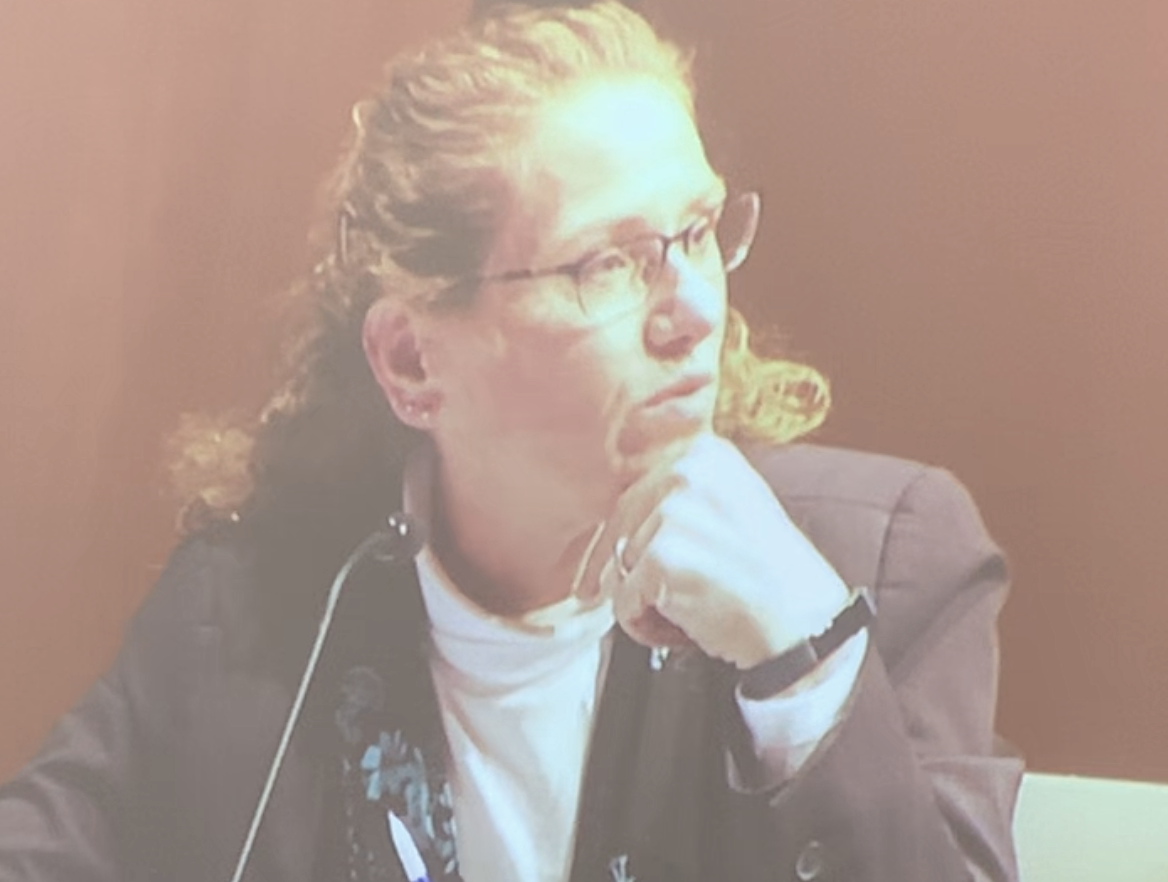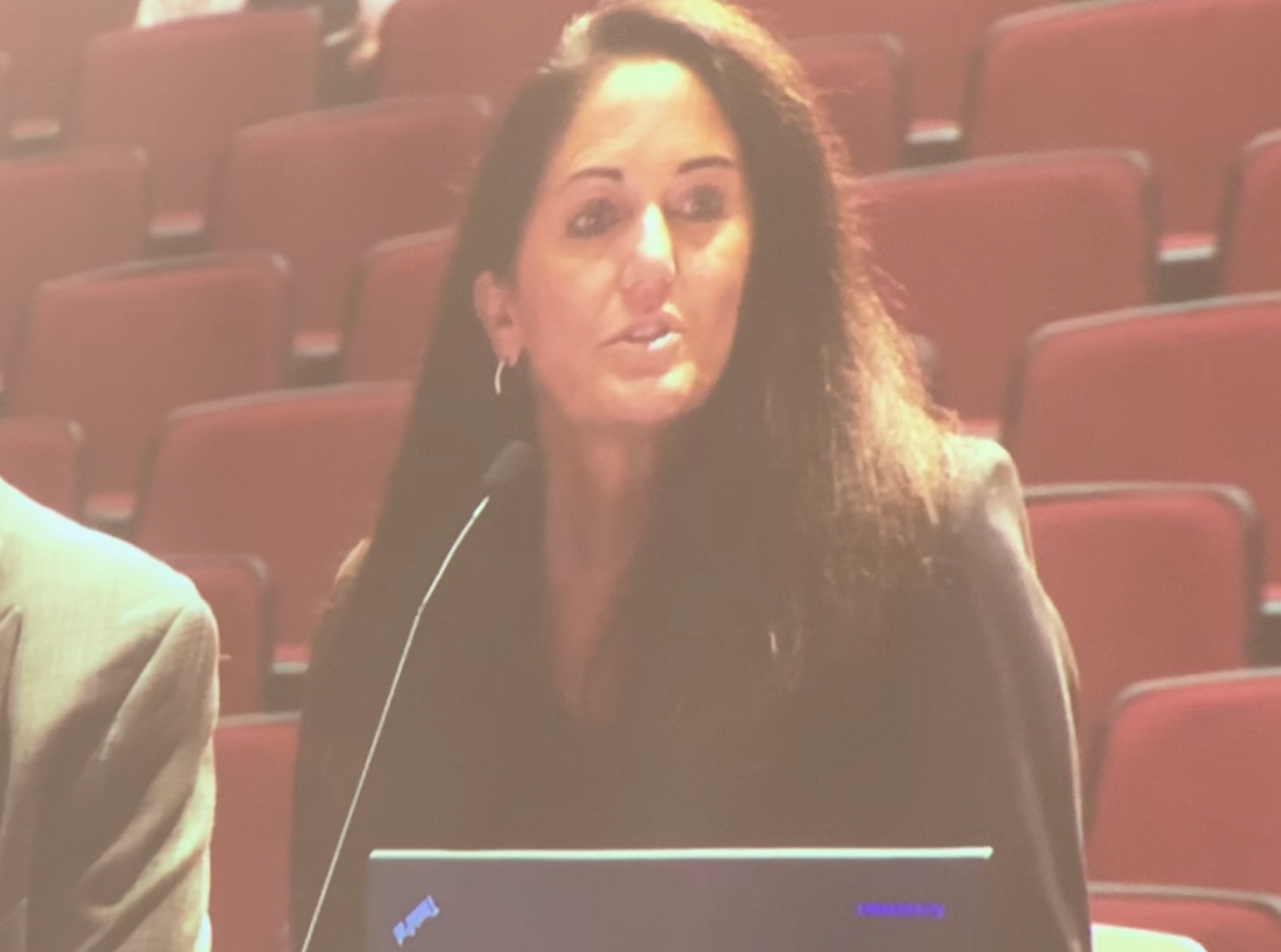
In an unusual session, the fiscal condition of the Peralta Community College District was discussed during the Sept. 16 meeting of the California Community College Board of Governors, held at Riverside College.
Peralta’s acting Chancellor Frances White and Board of Trustees President Julina Bonilla presented Peralta’s Financial Accountability and Recovery Action Plan to the Board of Governors following a critical report released by the Fiscal Crisis and Management Assistance Team (FCMAT).
“We are a district ready to change and committed to doing it right,” Bonilla said.
In their presentation to the board, White and Bonilla proposed a two year budget plan and development process which includes plans to implement a tentative budget in May 2020.
“We will implement regular self-checks to ensure that the FCMAT findings do not sit on the shelf, as they have previously, but rather as a blueprint to successfully reform our system.” — Julina Bonilla, President of the Peralta Board of Trustees.
The FCMAT report, released in June 2019, cited an “excessively high” fiscal health risk of 69.9 percent and “serious concerns about the district’s fiscal condition,” that if unaddressed could lead to the district becoming insolvent or requiring emergency appropriations from the state.
After a similar FCMAT analysis was published in 2011, Bonilla said the report was “shelved” and little was done to address the systemic problems of the district.
“We will implement regular self-checks to ensure that the FCMAT findings do not sit on the shelf, as they have previously, but rather as a blueprint to successfully reform our system,” Bonilla said.
The district administration called for the evaluation in January, after concerns were raised over Peralta’s fiscal health.
“We reached out to the Chancellor’s office, and welcomed FCMAT’s review. The district has not been brought here kicking and screaming,” White said.
Chancellor Eloy Ortiz Oakley recommends the appointment of a fiscal monitor for Peralta

In the wake of Peralta’s changing leadership, Chancellor Eloy Ortiz Oakley expressed concern over the implementation of the plan proposed by White and Bonilla. The district is on track to hire Peralta’s new chancellor in September and has already narrowed the search down to two candidates. Forums with the candidates are scheduled for Sept. 18 at the colleges and district office.
Oakley said he is prepared to assign a “fiscal monitor” for Peralta, who will represent the state at Trustee meetings and report progress back to the BOG. James Austin — Vice President of Business and Administrative Services for the MiraCosta Community College District, who also as a long track record working with finance for the California Community College system — is a candidate being considered for the position.
If the BOG deems that substantial progress is not being made, leadership is prepared to take their monitoring to the next level and assign a special trustee, Oakley said.
“I think for the Board of Trustees at Peralta this is a very serious situation. Not only do you serve a very important community — but it’s also a very important community of color that is critical to the future of California,” Oakley said.
“Anything we can do to support the board making very difficult decisions — and I know they are going to be difficult — we want to absolutely support the board.”
Board expresses concern over the district’s “culture” and the implementation of new plans.

After the presentation, the floor was open to questions and comments from the Board of Governors, many of whom expressed concern over the “culture” of favoritism, miscommunication and contention between colleges at Peralta referenced multiple times in the FCMAT report.
“The Peralta district has a lot of work to do…It is going to take the whole district including all four colleges to do that, and at times I do worry if that is possible based on the culture that exists,” said Michelle Giacomini, an Executive Officer at FCMAT.
Board Member Jolena M. Grande expressed concern over the degree to which students, faculty and classified staff were being involved in the discussions.
“Many times when something comes from the board of governors, immediately we have a reaction from the “front line” if you will, and they are here in droves telling us how wrong we are,” Grande said.
“I’d like to know where they are… and why they’re not sitting here with you.”

Chancellor Fran White stated that the administration has attempted to change the culture into “something more proactive for the entire district,” with the hiring of national firm Collaborative Brain Trust (CBT), who were hired in February to provide their own fiscal improvement plan for the district.
Board Member Amy M. Costa called into question the ability for Peralta to return to fiscal health in such a short timeframe.
“I read the entirety of the report, and frankly it’s pretty shocking, your budget system — or lack thereof,” said Costa. “Based on what I read you don’t have the infrastructure to move to a two year budget cycle.”
The FCMAT team also advised that a two-year budget plan was ambitious considering the dramatic systemic changes that need to occur at Peralta, and recommended a “multi-year” budget projection instead.
Challenges Ahead

Peralta’s Board has agreed to implement all of the 75 total recommendations made by FCMAT. To date, 19 have been “completed,” while another 23 are in progress.
Michelle Giacomini, an Executive Officer at FCMAT, stressed that the district’s problem was not a lack of funds, but rather that almost every aspect of the district’s systems and fiscal management practices are “broken.”
“Of the 18 areas on the Fiscal health risk analysis, the one area that this district is not lacking in…is fund balance. So the district isn’t running out of cash, they have the resources right now to get through this, but they are seriously deficit spending,” said Giacomini.
Giacomini also emphasized some of the major challenges ahead, notably the management of Other Post Employment Benefits (OPEB), a financial decision made in 2008 that guarantees lifetime benefits to all employees hired by Peralta before June 2004.
Employee compensation is the largest budgetary expense for the district, and constitutes 80 percent of Peralta’s Unrestricted General Fund Expenditure Budget for 2019–2020.
Bonilla also emphasized the OPEB bond as a major challenge moving forward. “This means that the Board will need to make a series of very unpopular decisions about staff reduction,” she said.
While the meeting took a serious tone, at times the discussion verged on emotional, with many Board Members expressing sympathy towards the difficult position of Peralta’s current administrators.
Albert Harrisson, Peralta’s Interim Vice Chancellor of Administration and Finance who returned to Peralta in April 2019 after retiring in 2004, was brought to tears when he expressed his disappointment in Peralta’s state of affairs.
“When I retired in 2004 Peralta was not in this shape, therefore I’m sad to be here,” Harrison said.
“I have spent almost 45 years of my life dedicated to Peralta. Peralta has done better, it can do better, and I think it will do better.”
Saskia Hatvany is a reporter for the Laney Tower. Contact her at [email protected].

























